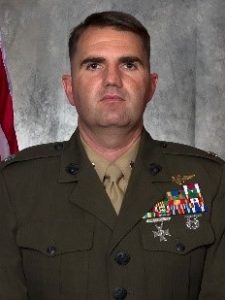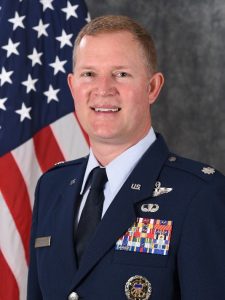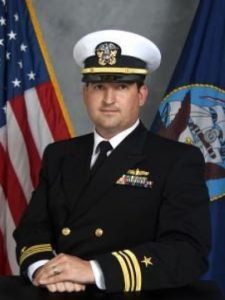The American people can have confidence that their servicemen and women will continue to serve regardless of who is president, as has been the case since Washington relinquished the presidency to Adams, with a total and unflagging commitment to the Constitution of the United States.
Over the past six months a disturbing trend emerged in our awareness, we noticed people, some of whom we know personally, suggesting that the military might not support the transition of power from one administration to the next. As the events of the past year unfolded, progressing to the disturbing scene at the U.S. Capitol on the 6th of January, the specter of doubt about the loyalty of America’s armed forces to its sovereign, the People, grew, looming large enough to prompt a rare statement by the combined Joint Chiefs of Staff to the joint force. We cannot say any more clearly, nor state more emphatically than our leadership, how committed the men and women who defend the United States of America are to this country.
The assertion by the nation’s top military leadership that the public can continue to trust the military to “obey lawful orders from civilian leadership…ensure public safety in accordance with the law, and remain fully committed to protecting and defending the Constitution of the United States…,” is unequivocally true. As they note, “the American people have (emphasis ours) trusted the Armed Forces of the United States to protect them and our Constitution for almost 250 years” and without question they can continue to do so.
Still, what you see depends on where you sit, and understanding that increasingly the military experience is less commonly shared amongst the American citizenry, it occurs to us that many Americans do not have enough contact with the military and its culture to eliminate all doubts. While we cannot add to the message of the Joint Chiefs, we might help explain why the American Public can trust in its veracity.
The culture of the U.S. military is one founded on the virtues of loyalty and service. Specifically, loyalty to the Constitution and service to the nation over self. It is difficult to overemphasize the degree of commitment service members have to the Constitution. The best indicator is the oath of office, common across our government:
I [officer’s name], do solemnly swear that I will support and defend the Constitution of the United States against all enemies, foreign and domestic; that I will bear true faith and allegiance to the same; that I take this obligation freely, without any mental reservation or purpose of evasion; and that I will well and faithfully discharge the duties of the office upon which I am about to enter. So help me God!
This version, the Officer’s Oath, is representative of the pact that each member of the military makes each time they accept promotion, re-enlist, or assume a new office. To describe it as core, or central to the member’s ethos is accurate, but also an understatement. The individual service member’s allegiance is first, foremost, and for all seasons oriented on the Constitution and in this the U.S. Armed Forces suffer no compromise.
It is important to recognize that this is fundamentally an apolitical stance—a trait that is fiercely defended and nurtured through training and education. You might note that the oath is not to the “Government,” the “President,” the “Secretary of Defense,” or any other office or official. The oath is a promise to serve the Constitution, adhere to its requirements and do so even unto what President Lincoln called “the last full measure of devotion.”
Admittedly, the military is not monolithic, rather it is increasingly diverse in its makeup. But in our commitment to the nation and its laws, we are unified. Unquestionably, there are service members who hold passionate political views from across the political spectrum; those are personal and exercised privately in the voting booth. Authorized political activities are narrowly defined by law and where individuals violate this standard, they are reprimanded. In our roles as Soldiers, Sailors, Airmen, Coast Guardsmen, Guardians and Marines, personal views are subordinated to our call to service.
Embedded in the service member’s commitment to this ethos is a culture of service above self. In its basic form, you see it in the small unit training at our boot camps. There, young men and women learn from the beginning that the team and the mission take priority over the individual. This concept is extrapolated in form across the myriad environments in which the individual service member lives and works. It is fundamental to our identity; it pervades our thinking and motivates our actions in matters both routine and monumental.
It is the call to service that leads us to endure separation or deprivation, to ask our families to do the same, and at times to bear physical risk even unto death. It is a consistent and stirring feature of the military life whether expressed in frequent moves, lengthy times at sea, or combat tours. Commitment to service over self explains why, even through the turmoil of the past month, the public can rely on their military to put aside any personal views on the events of today and see the requirements of the Constitution met. Service to the nation is the mission and America’s military will see it through.
While confidence in other institutions has eroded, surveys routinely note the public confidence in the military to act in the best interest of the public. This is a well-founded view. From our nation’s birth, the military has been placing the needs of the people before the needs of the individual members. Since the adoption of our Constitution, the military has been loyal to America’s governing principles. The twin threads of loyalty and service continue to bind each service member to the fabric of the nation. They are the definitive feature of any commission or enlistment.
In preparing this thought piece, we re-read the constitution, as should all Americans from time to time—it is only 4,545 words, a little longer with the twenty-seven amendments. The first sentence embodies the military’s relatively small role in securing our democracy as imperfect as it still is, “We the people of the United States, in order to form a more perfect union, establish justice, insure domestic tranquility, provide for the common defence, promote the general welfare, and secure the blessings of liberty to ourselves and our posterity, do ordain and establish this constitution for the United States of America.” The greatest aspect of our country is that the American people are the ones that secure our collective freedoms. Whether you are, have, or never served in the military, we all play a part in preserving our great constitutional federal republic. One institution can’t do it all, but if we collectively do our part, the United States will continue to be a shining light of democracy. No one but We, the people, can take that away.
In their statement, the Joint Chiefs observed: “On January 20, 2021, in accordance with the Constitution, confirmed by the states and the courts, and certified by Congress, President-elect Biden will be inaugurated and will become our 46th Commander in Chief.” The American people can have confidence that their servicemen and women will continue to serve regardless of who is president, as has been the case since Washington relinquished the presidency to Adams, with a total and unflagging commitment to the Constitution of the United States.
Lieutenant Colonel Matthew R. Crouch, United States Marine Corps is a Senior Military Fellow at the Atlantic Council’s Scowcroft Center for Strategy and Security. A graduate of the United States Naval Academy, he holds master’s degrees in Political Science and International Business Administration and is an Olmsted Scholar.
Commander Ron C. Fairbanks, United States Navy, is a Senior Military Fellow at the Atlantic Council’s Scowcroft Center for Strategy and Security. He is a naval surface warfare officer and graduate of the University of Southern California.
Lieutenant Colonel Christopher P. Mulder, United States Air Force, is a Senior Military Fellow at the Atlantic Council’s Scowcroft Center for Strategy and Security. A graduate of the United States Air Force Academy, he is a command pilot and interested in leadership and national security issues.
The views and opinions expressed here are those of the authors and do not necessarily reflect the official policy or position of any agency of the U.S. government or other organization.


